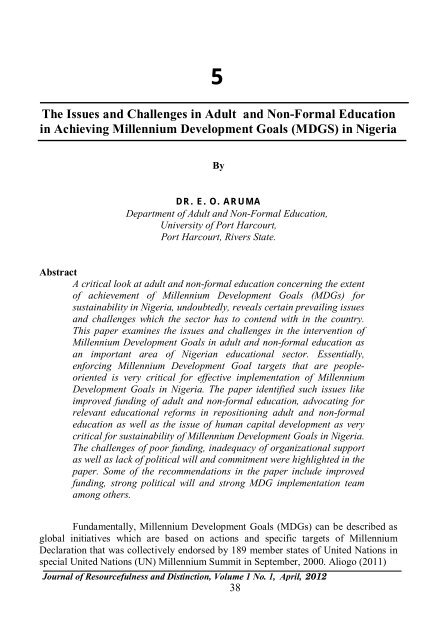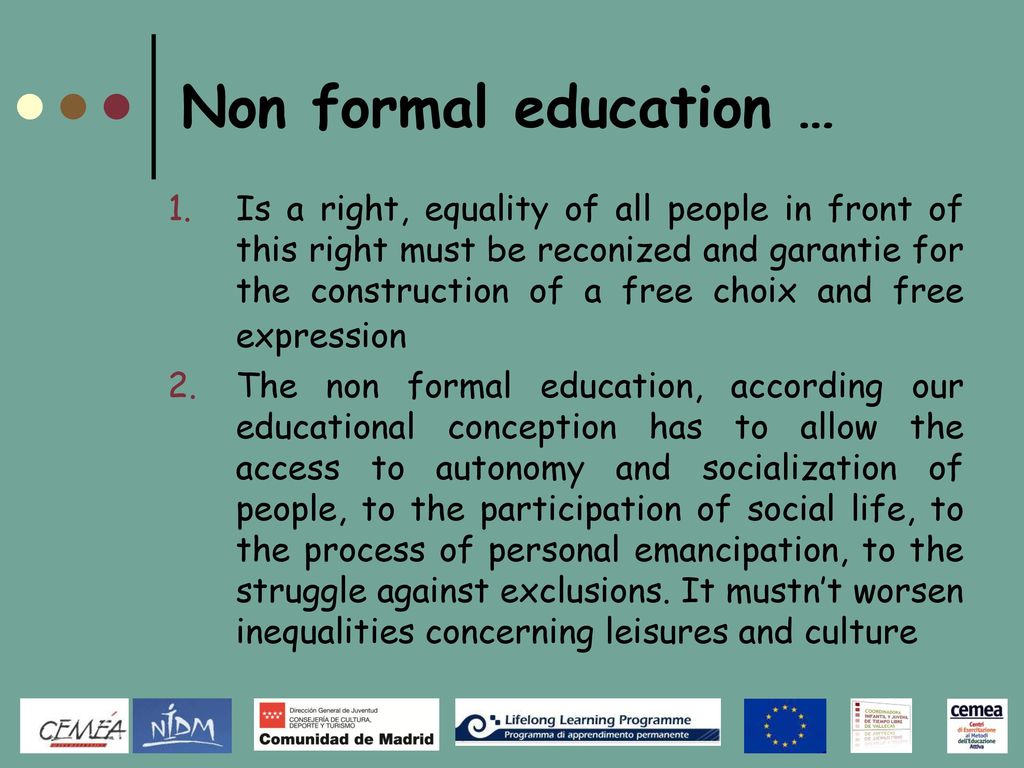

Notably, it concludes that the demand for validation is growing in most countries (with the number of countries who have developed comprehensive national strategies increasing from 5 to 13 since 2010).

It includes 36 reports for 33 countries, eight in-depth thematic reports, two case studies and a synthesis report of main findings. This update, compiled in cooperation with the European Commission, closely reflects the European guidelines on validation.
#Challenges of non formal education update
This is certainly a laudable and ambitious aim, and there are those who feel that the drive to formalise all types of learning may well lead to a narrower conception of learning.Ĭritics of this Recommendation can so far rest easy the reality is that the validation of non-formal and informal learning (VNIL) remains fragmented across Europe, as the 2014 update of the European Inventory on Validation makes clear. The 2012 Council Recommendation calls for Member States to put in place, by no later than 2018, arrangements to enable individuals to have their knowledge, skills and competences acquired via non-formal and informal learning validated, and to be able to obtain ’a full qualification, or, where applicable, part qualification on the basis of validated non-formal and informal learning experiences’. The referenced media source is missing and needs to be re-embedded.


 0 kommentar(er)
0 kommentar(er)
